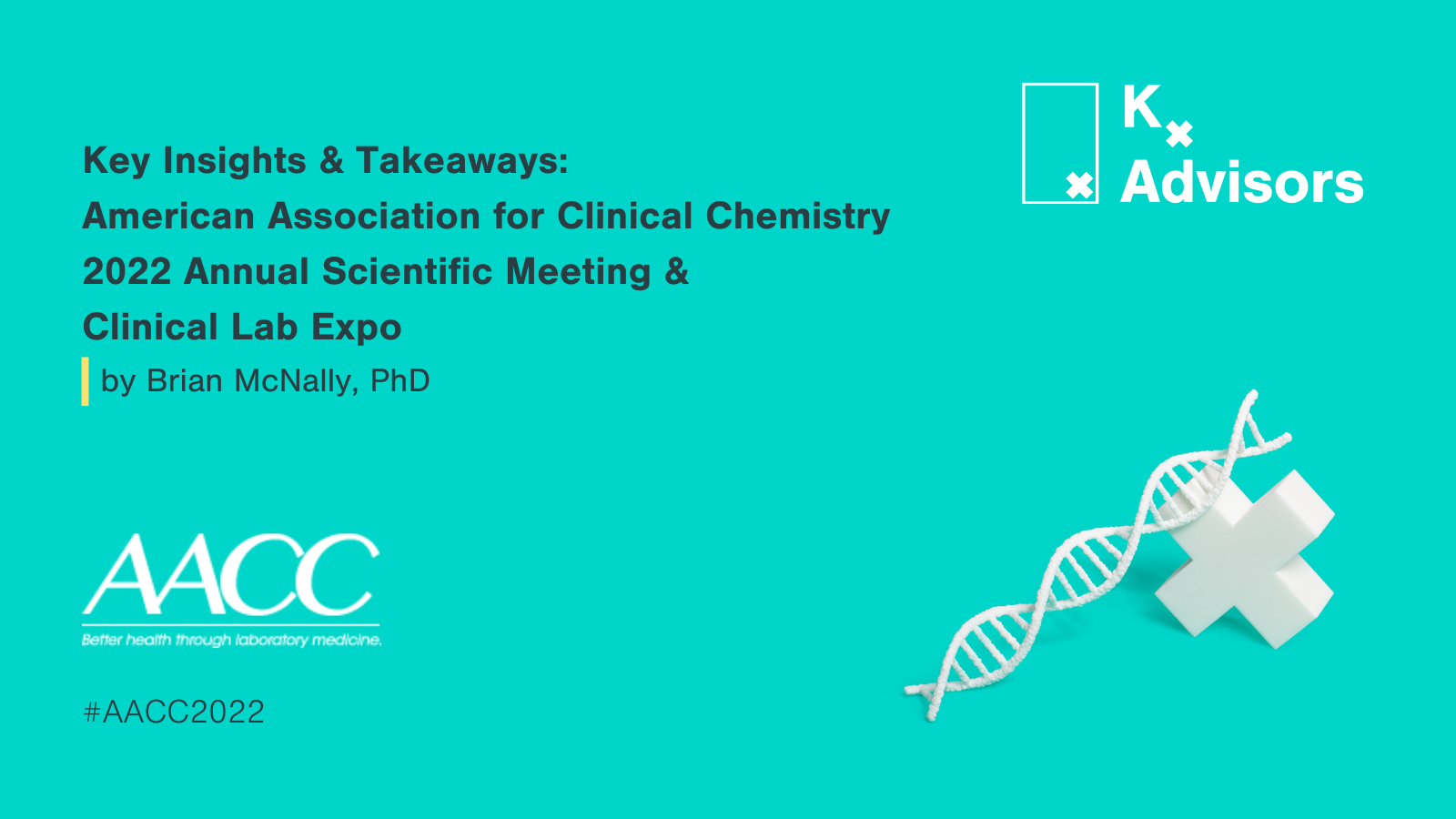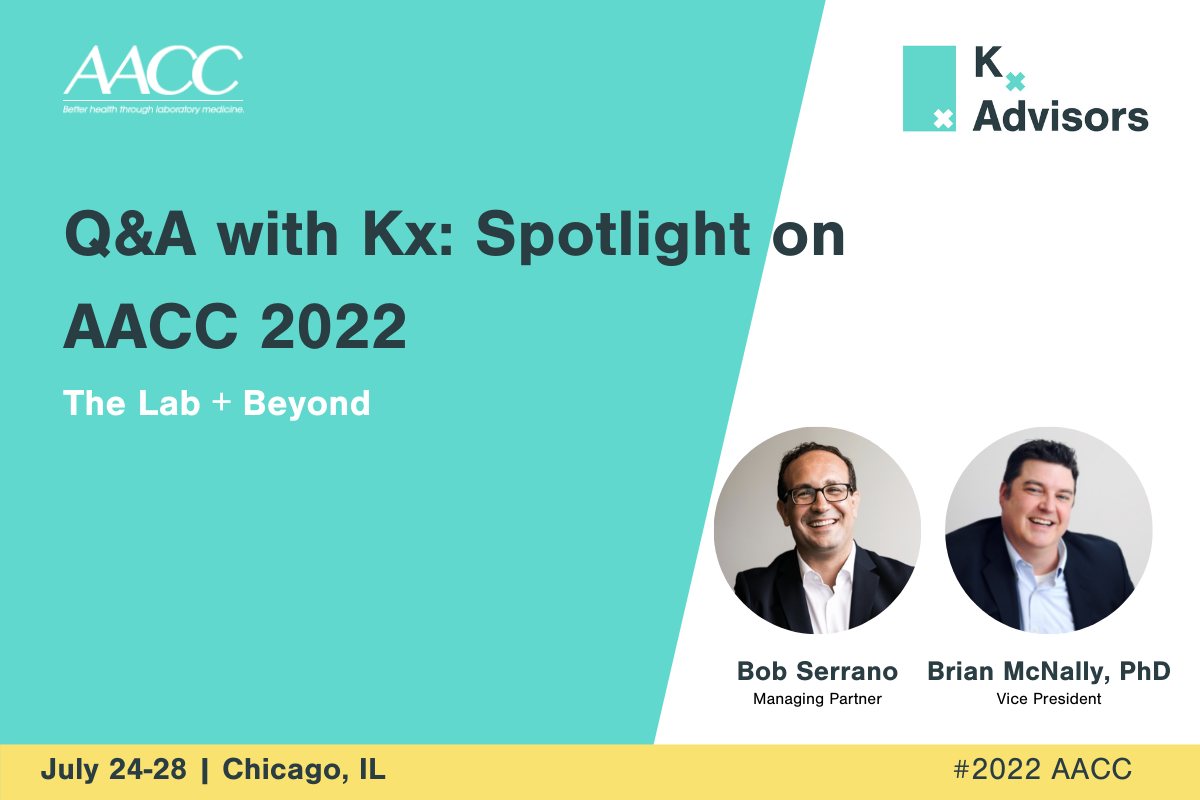The Clinical Chemistry Annual Meeting did not disappoint with great attendance, engaging talks, and some innovative exhibits. After digesting all our notes (and a bit of Chicago’s finest culinary fare) from the busy week, we walked away with five key takeaways:
Innovative culture on display
If new products and technologies capture your attention, the Clinical Expo did not disappoint. Headlined by the Disruptive Technology Award winner, Nanopath, who led with a solid-state biosensing platform that removes the need for nucleic acid amplification. However, the Clinical Expo was full of new product launches, with some breaking new ground, such as Angle, plc with a system for harvesting cancer cells from patients’ blood for analysis. As expected, a stream of Monkeypox virus controls and assays were starting to be announced to address the now declared public health emergency. With promising innovations come questions about their ability to displace existing technologies, improve testing workflows, the size of addressable markets, and go-to-market plans. Members of the Kx team support clients by answering these types of questions every day and can assist you in thinking through how best to tackle these issues.
Still have VALID fears
On the heels of Europe having a regulatory shakeup in diagnostics (In-Vitro Diagnostic Medical Devices Regulation (IVDR) implementation), it seems likely the United States is about to follow suit with the Verifying Accurate Leading-edge IVCT Development Act (VALID Act) coming to a vote in Congress as early as next month. With so many clinical laboratorians converging on the conference, we expected to hear various positions and forecasts. AACC organizers did an excellent job putting forward an update through a session titled “Valid Vital LDTs: Current State of Regulation Legislation of Laboratory-Developed Tests.” However, we are left with the impression several laboratorians are upset with the impact this legislation could have on their business. Kx Advisors is keeping a close eye on this legislation and will be providing an update as the situation evolves. Get in touch if you would like to be kept informed and up to date on the latest developments.
Tech influences testing
Algorithms, connectivity, and smartphones were highlighted not only on the main stage, but across the Expo floor. Artificial intelligence and machine learning were featured in Dr. George Church’s plenary session discussing how machine learning will support a laboratory’s desire for multiplex testing, simultaneously gathering anywhere from tens up to billions of data points. On the show floor, we saw several connectivity products and features on display falling into two basic categories. First, solutions, such as Planet Innovation’s NeoSync(TM) and BrightInsight’s Connected Diagnostics Platform, focus on flexible configurations that may integrate into existing or future medical devices. The second category leverages smartphones as a connectivity conduit, with applications spanning from mobile phlebotomy to test analysis for blood clotting, infectious disease and more. Implementation of connectivity and algorithm-driven testing schemes as either products or product attributes require a strong understanding of testing behaviors and user segmentation. Kx Advisors utilizes novel behavioral modeling, and environment/user segmentation frameworks to support prioritizing the ideal tech-enabled features and products.
Character matters
As an industry, we all watched the collapse of Theranos, and the subsequent convictions of Elizabeth Holmes and Ramesh Balwani on fraud charges. These events surfaced discussions on the intersection of startup culture and clinical diagnostics, public trust in laboratory medicine, and the role of government oversight. AACC organizers wisely “read the room” and highlighted a discussion on ethics and accountability with Theranos whistleblowers, Erika Cheung, and Tyler Shultz. As a part of the diagnostics community, I applaud the efforts of AACC to facilitate these discussions.
Thank you, Chicago!
Chicago offers more than hot dogs and pizza – If you read our previous post about the hot topics of AACC, Bob Serrano and I voted for our favorite Chicago signature foods. Well, thank you Chicago for some amazing food and great hospitality— even if we missed grabbing a dog.
How Kx Can Help
Discuss more on the latest developments in diagnostics and life sciences or our key takeaways from the 2022 American Association for Clinical Chemistry Annual Scientific Meeting & Clinical Lab Expo. Contact Brian McNally, PhD brian.mcnally@kxadvisors.com.


